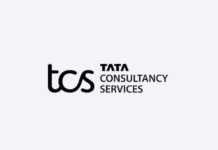Are you feeling overwhelmed by multiple debts with high-interest rates? Don’t worry; you’re not alone. Many people find themselves juggling various loans and credit card balances, struggling to keep up with payments and feeling like they’re stuck in a never-ending cycle of debt. But fear not, because there’s a financial strategy that could help simplify your finances and save you money in the long run: debt consolidation. In this guide, we’ll delve into the world of debt consolidation help, exploring its pros and cons, guiding you through the consolidation process, and helping you determine if it’s the right choice for you.
Understanding Debt Consolidation: Simplifying Your Financial Life
Debt consolidation involves taking out a new loan to pay off multiple existing debts, consolidating them into a single monthly payment. The goal is to streamline your finances by combining all your debts into one manageable loan with a potentially lower interest rate. By doing so, you may be able to reduce your monthly payments, save money on interest, and pay off your debts faster.
Exploring the Pros and Cons: Weighing Your Options
Like any financial strategy, debt consolidation comes with its own set of pros and cons. Let’s take a closer look at both sides of the coin:
Pros:
- Simplified Finances: Consolidating your debts into a single monthly payment can make it easier to manage your finances and stay on top of your payments.
- Potential Interest Savings: If you qualify for a lower interest rate on your consolidation loan compared to your existing debts, you could save money on interest charges over time.
- Faster Debt Repayment: With a single, consolidated loan, you may be able to pay off your debts more quickly and become debt-free sooner.
Cons:
- Risk of Accumulating More Debt: Consolidating your debts doesn’t erase them—it simply moves them to a new loan. If you continue to use credit irresponsibly, you may find yourself in even deeper debt.
- Fees and Charges: Some debt consolidation loans come with origination fees, closing costs, or other charges that can add to the overall cost of borrowing.
- Potential Impact on Credit Score: Opening a new credit account and closing multiple existing accounts can affect your credit score, at least temporarily.
Navigating the Consolidation Process: Steps to Success
If you’re considering debt consolidation, here’s how to get started:
- Assess Your Debts: Take inventory of all your debts, including balances, interest rates, and monthly payments.
- Research Your Options: Explore different debt consolidation loans and programs to find the best fit for your needs. Consider factors like interest rates, fees, and repayment terms.
- Apply for a Consolidation Loan: Once you’ve found a suitable option, apply for a consolidation loan and use the funds to pay off your existing debts.
- Stick to Your Repayment Plan: Make timely payments on your consolidation loan to stay on track towards debt freedom.
Knowing When to Consolidate: Is It Right for You?
Debt consolidation isn’t the right choice for everyone. Before proceeding, consider the following factors:
- Your Financial Situation: Debt consolidation may be beneficial if you have multiple high-interest debts that are difficult to manage. However, if you’re struggling with overwhelming debt or facing financial hardship, other options like debt relief programs or bankruptcy may be more appropriate.
- Your Credit Score: To qualify for a consolidation loan with favorable terms, you’ll typically need a good credit score. If your credit is less than stellar, you may have difficulty securing a low-interest consolidation loan.
- Your Commitment to Change: Consolidating your debts won’t solve underlying financial issues. To truly achieve long-term financial stability, you’ll need to address the root causes of your debt and adopt healthy financial habits.
Conclusion: Taking Control of Your Financial Future
Debt consolidation can be a valuable tool for simplifying your finances and saving money on interest, but it’s not a one-size-fits-all solution. Before consolidating your debts, carefully weigh the pros and cons, research your options, and consider seeking guidance from a financial advisor or credit counselor. With the right approach and a commitment to financial responsibility, you can take control of your financial future and work towards a debt-free life.








